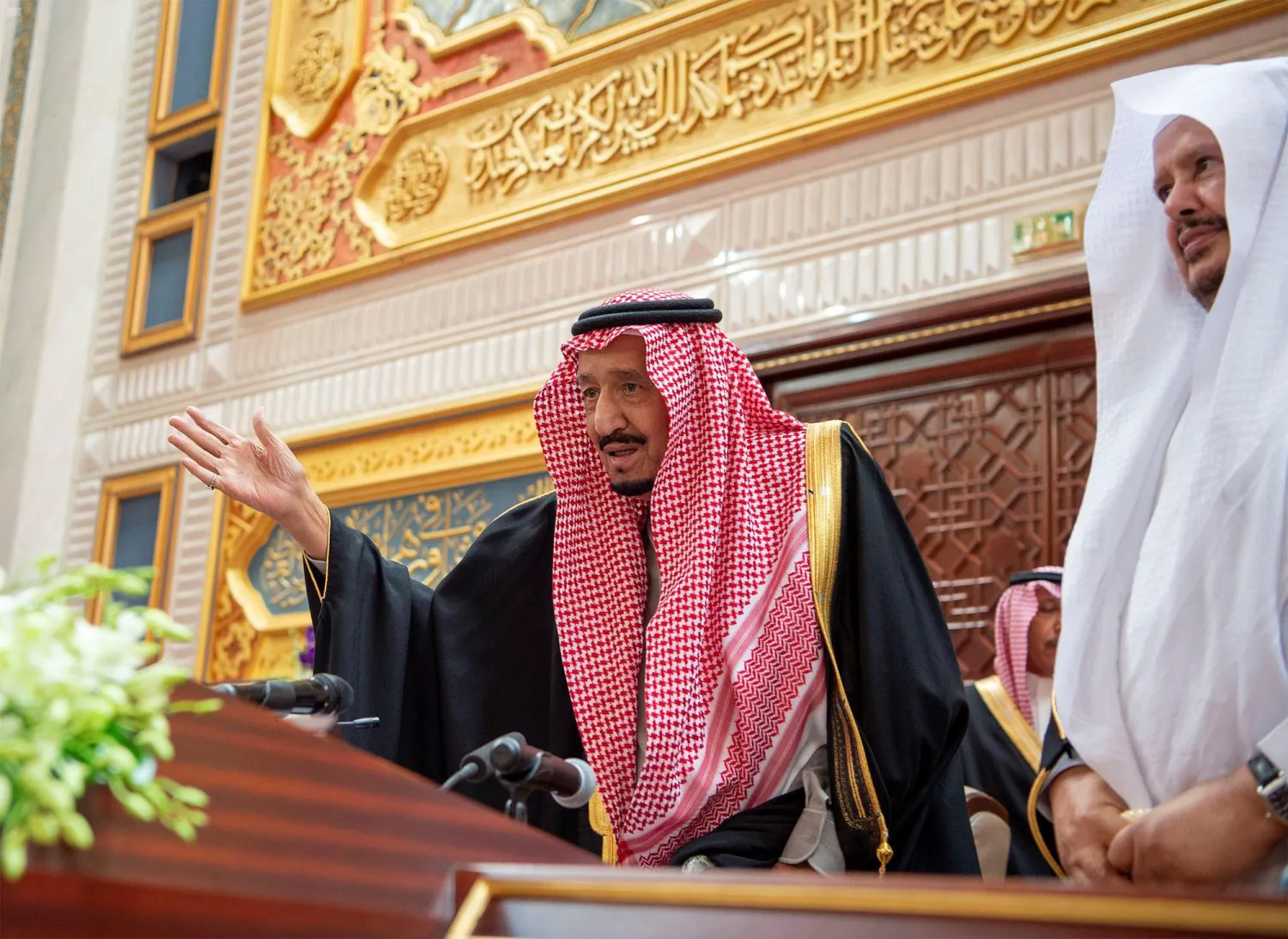Saudi Arabia celebrates on Saturday the fifth anniversary of Custodian of the Two Holy Mosques King Salman bin Abdulaziz’s ascension to the throne.
The Kingdom has made remarkable and unprecedented political, social, economic and development achievements since King Salman ascended the throne on January 23, 2015.
The achievements have demonstrated that the Saudi leadership is committed to its pledge to build a state for the future and to take its place among the major world powers, with all of their political, economic, scientific and social weight.
King Salman’s speeches at international and local forums have emphasized the importance of national development and the need to achieve more accomplishments. He has sought to highlight the role of Saudi youth in making achievements possible, saying they are firmly forging their way forward, armed with their Islamic and Arab heritage.
He has sought to underline that Saudi Arabia is the country of Islam, from where this religion emerged, stressing that the Kingdom stands firmly with all Arab and Muslim countries as they strive for their rights.
His speeches have also underscored the importance of the Gulf Cooperation Council, which was originally formed to bolster the peace, stability, development and prosperity of the Gulf people.
Throughout his five years in power, Saudi Arabia witnessed massive development, which was recognized and praised around the world. This progress aims to achieve sustainable development that will allow the Kingdom to take its place among the world’s advanced countries.
The accomplishments are too many to count, but the most significant of them is the government’s approval a year ago of the Kingdom’s largest budget to date at over 2 trillion riyals and revenues of over 900 billion riyals.
The Kingdom also approved development projects and signed major deals with global companies aimed at further developing the country. It has sought to ease its dependence on oil through investing in local tourism in all of its forms with the Kingdom aiming to attract 100 million tourists annually, according to Vision 2030. To that end, Saudi Arabia inaugurated several major projects, such as the King Salman Park, Sports Boulevard, Green Riyadh, Riyadh Art and Diriyah Gate Project. King Salman also inaugurated during the holy month of Ramadan the Hajj and Umrah Program that is part of Vision 2030.
Women empowerment has also been at the forefront of Saudi achievements in recent years under King Salman’s reign. The Kingdom has taken unprecedented decisions to empower women through granting them their natural right to employment, which will allow them to directly contribute to the country’s development alongside their male counterparts. Women were also allowed to drive during King Salman’s reign.
King Salman grew up in the royal palace in Riyadh where he used to accompany his father at official meetings with kings and world rulers.
He received his early education at the Princes' School in Riyadh where he studied religious and modern studies. He completed reading the holy Quran, under the guidance of late Imam of the Masjid al-Haram Sheikh Abdullah Khayyat, when he was ten years old.
Since his youth, King Salman showed an interest in education and was granted several honorary degrees and awards in recognition of his efforts.
King Salman was appointed Governor of the Riyadh region in 1955 when he was 20 years old. He occupied that position for more than five decades. During that time, he transformed the capital, then of some 200,000 people, into one of the Arab world’s fastest growing capitals.
His tenure as governor was not without obstacles and challenges, but he was able to overcome them and Riyadh is now one of the wealthiest and most influential cities in the region. Moreover, King Salman has received several awards and medals in recognition of his humanitarian efforts.









